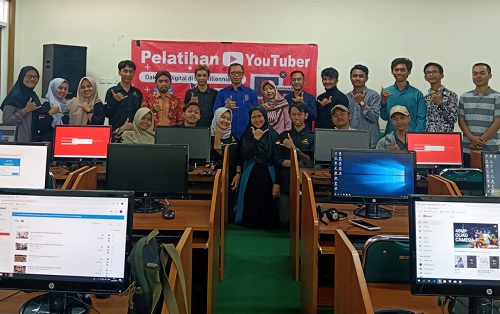Da’wah—the act of calling others to believe in and be obedient to Allah—should be a fundamental part of a Muslim’s life. Therefore, as Muslims, we should actively engage in da’wah in various forms, adapting our efforts to every situation and condition.
It’s essential to understand, however, that our methods must evolve with the times. As information technology advances rapidly and transforms every aspect of life, our approach to da’wah should also adapt accordingly.

This means that the content, methods, and media used in da’wah should align with current conditions. In today’s era of globalization, which fosters the exchange of worldviews, ideas, products, and various aspects of culture, we must embrace new approaches to stay relevant.
The book A Future Perfect: The Challenge and Promise of Globalization (2003) by Random House highlights that globalization impacts social behavior in various areas of life. These changes may bring positive or negative effects, depending on how we respond.
Thus, we need to discern carefully what is beneficial for our lives and, in turn, for da’wah. In this era of abundant resources, we have numerous opportunities to promote da’wah in a meaningful way.
For instance, even during the COVID-19 pandemic, da’wah can continue by leveraging advancements in information technology. We can produce engaging da’wah content using these technologies—through newspapers, magazines, social media, film, television, radio, and journals dedicated to religious topics.
Various electronic devices, such as smartphones, also offer a range of apps that can facilitate da’wah. Da’wah material can be created in diverse formats and shared across various media platforms, reaching a broader audience.
Why is adapting our da’wah methods so crucial? On one hand, technological progress has made dissemination of information easier than ever. On the other, it has influenced societal values and behaviors, as scientific and technological advancements gradually reshape cultural norms—sometimes leading to the abandonment of older traditions.
Modern communication technology has accelerated the globalization of information. Consequently, we must be prepared to engage with a constant flow of information across all fields. This information—whether through print or electronic media—now transcends limitations of distance, space, and time.
Given the broad impact of mass media, it becomes clear that we should harness it thoughtfully. Media content should ultimately reflect and support the needs of a society that shares common social values.
As Muslims, if we possess knowledge, we have a responsibility not only to apply it in our own lives but also to share it with others, even if it’s as simple as conveying one verse. However, if da’wah is pursued through coercive, violent, or inhumane methods, its noble purpose loses all meaning.
Some conflicts have arisen from misguided da’wah methods, such as the spread of provocative sermons, hoaxes, or slander that go viral, unsettling communities and leading to legal issues. Often, these issues stem from attempts to promote religious awareness that end up sparking controversy.
In light of this, regardless of the media chosen, da’wah should always be carried out in a respectful and constructive manner, grounded in compassion and understanding.
Translated from here.






